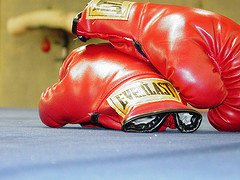Turns out that the best course of action is rarely the one we (first) thought of. To get the most out of them, we need to beat up our ideas. We need to mash them with other people’s ideas, finding the way forward that wouldn’t have occurred to any of us otherwise.
Sadly, though, we tend to take things personally.
We subtly conflate our ideas with our identities. When our ideas get attacked, we feel attacked. Conflict brews but then social norms kick in. We try to be nice to each other and deferential to bosses. We quickly avoid or shut down conflict.
Sometimes we return to a genteel steady state with our colleagues. And sometimes the conflict burns on, hidden. It flares up later in politics, turf battles, or simply as another personal conflict over the next issue.
Through it all, our ideas remain unchallenged, unannealed. Meager, puny little ideas that can’t really help us end up in front. We and our organizations suffer because we can’t argue well.
The solution, of course, is to disconnect our worth from our ideas. We can choose to have our ideas torpedoed, stomped upon, and (horror) even changed. And we can encourage others to do the same. The trick is to explicitly and repeatedly affirm our respect and care (sure, even love) for each other before, during, and after the meetings where we beat up the ideas. Once everyone knows that they are not the target, we can argue well and find the best ways forward.
In your corner,
Mike
PS: Another good way to argue: agree on the what and why before the who, how, and when.
Today’s photo credit: https://flic.kr/p/27SzDZ cc


